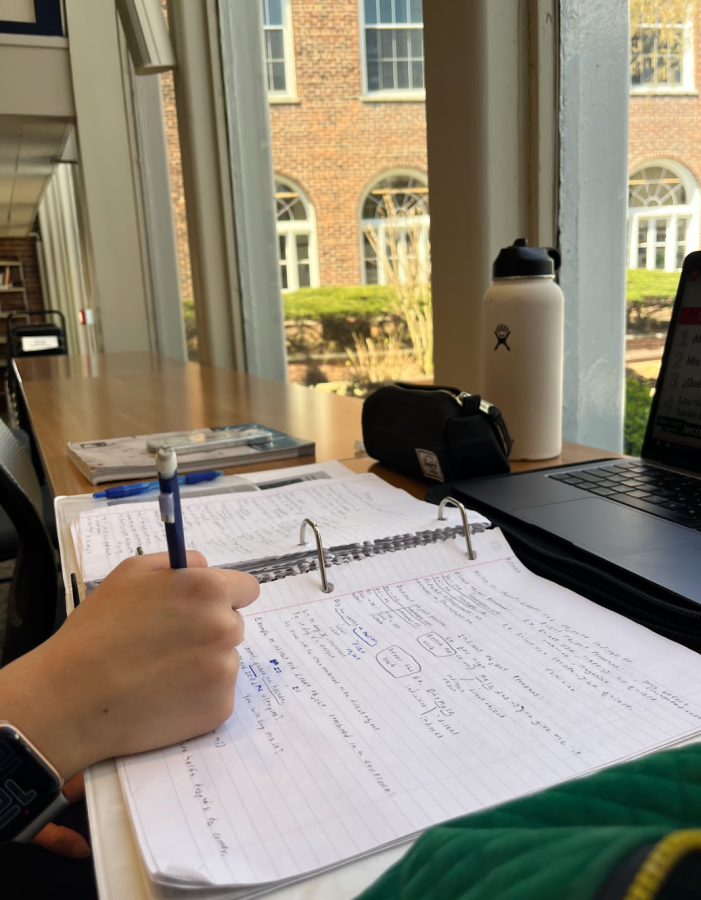Time’s Up on Extra Time
May 10, 2023
“Don’t make me take it out of your hand!”
The threat is oft-heard as I scramble towards the finish line of a bi-weekly physics quiz. These short exams should be mere grade boosters, yet I am plagued by an insuperable recurrence: the familiar “stupid mistake.” As one of four regular-time students in a class of thirteen, I am hurried by unyielding time constraints. Frustrated by my normalcy, I investigated the extra time system, discovering a need to establish equity, and spare students desperate groveling for “just one more minute!”
Extra time refers to accommodations for students with neurological, learning, and cognitive disorders. To get extra time on school and standardized exams, one must receive a neuropsychological evaluation.
Unfortunately, securing such an evaluation can cost anywhere between $1,000 and $10,000 according to Parents.com, and there are inconsistent patterns of diagnoses between demographics.These flaws result in an excessive number of extra-time accommodations. A structure meant to level the playing field instead can provide some unwarranted advantages, whilst failing to address students lacking ample financial resources.
According to a 2019 New York Times article, “there is little doubt that the process is vulnerable to abuse… private mental health practitioners operate with limited oversight.” Moreover, “At high schools in the richest school districts…5.8 percent of students held a 504 plan, more than double the national average of 2.7 percent. Some wealthy districts had 504 rates of up to 18 percent.”
A “504 plan” refers to Section 504 of The Rehabilitation Act requiring schools to offer accommodations. These numbers have grown in recent years according to the New York Times, as some families abuse this loophole in pursuit of higher test scores —a byproduct of the ruthless college admissions process.
Those supporting the current system note that not all those applying for extra time are granted an accommodation. This is technically true, as the rate hovers around 90 percent. Such a high number is perplexing, though, as according to a 2021 study by the Journal of Postsecondary Education and Disability, “it is common for extra time to be recommended for students diagnosed with ADHD in the absence of evidence supporting need.”
I am not questioning the legitimacy of students with actual disorders and genuine struggles. Instead, I hope to see the extra time system rectified so that those with a need, irrespective of systematic shortcomings, see that need met.
The steps that must be taken toward achieving this goal are manifold. The 2021 study suggested that the majority of students granted extra time do not use the full allotment, and frequently use none at all. As such, smaller increments of time should be considered to ensure equitable opportunities for success. The process of diagnosis must be federally standardized and policed with greater oversight. Finally, there must be a widespread low-cost option for seeking out accommodations.

























